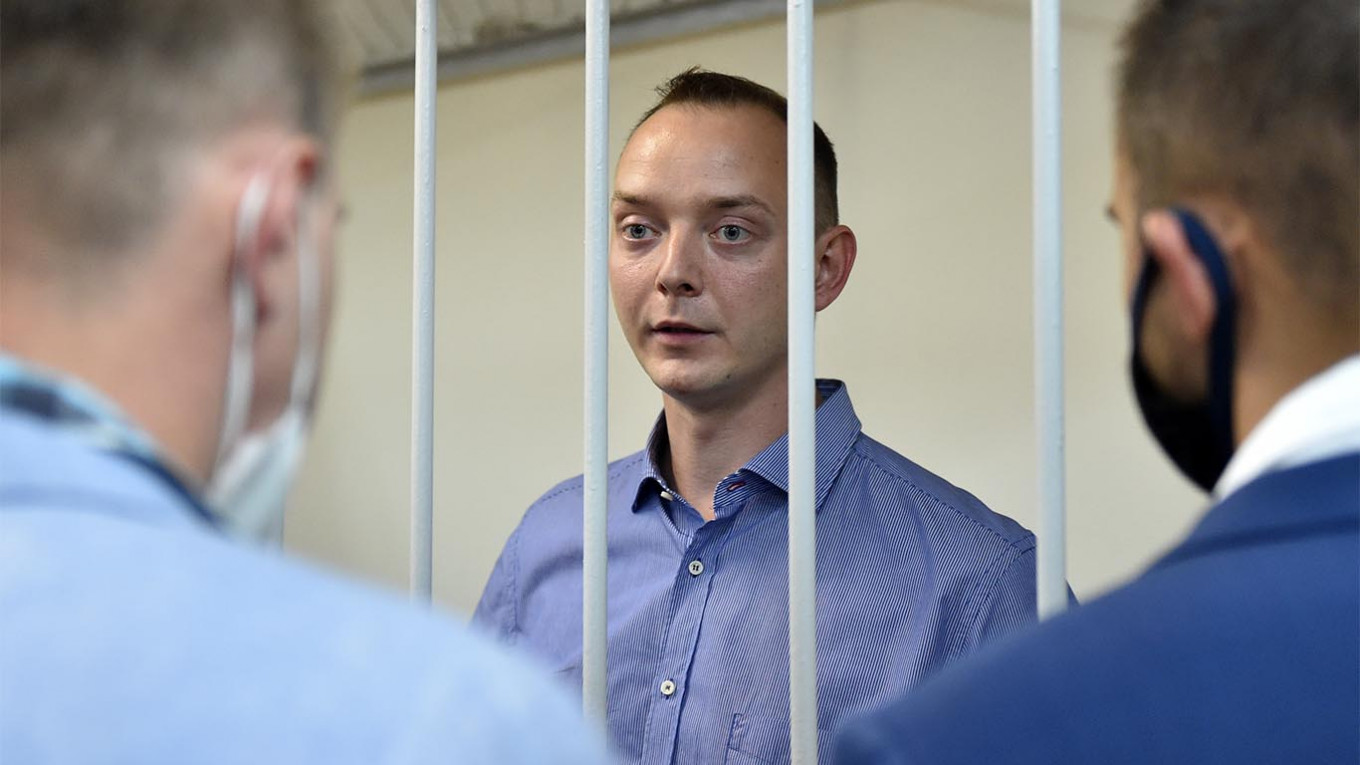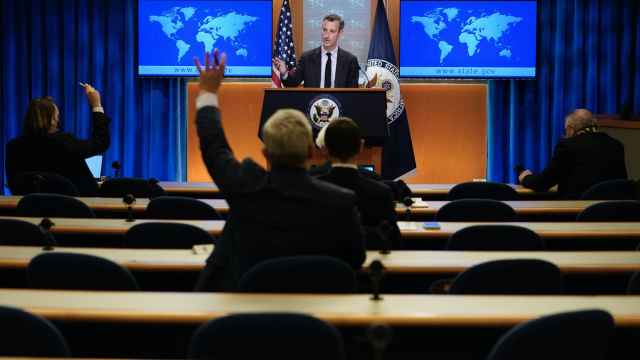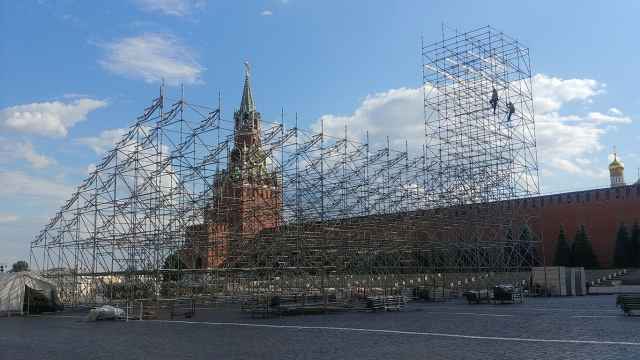The life of a journalist in Russia is neither safe nor easy, at least not if you want to do your job. The most dangerous beat used to be that of the regional investigative journalists, whose inquiries into local corruption and gangsterism earned them the same attrition rate as war correspondents. National journalists used largely to enjoy greater freedom of thought and operation. But that may be changing.
The arrest of Ivan Safronov, the highly-respected former defense correspondent for Kommersant and Vedomosti, who had just a couple of months ago moved across to work for Roskosmos, is one more reason to believe that a new crackdown is here, as the Kremlin unleashes the Federal Security Service (FSB) against critical voices in the media and cultural spheres.
Unlike other recent cases, Safronov has been charged with treason under Article 275 of the Criminal Code, so the eventual trial will be closed and our knowledge about what is in the seven bound volumes of evidence is scanty. Nonetheless, what little we know about the case so far does sound rather tenuous.
Czech your facts
The FSB alleges that in 2012, Safronov was recruited by ÚSZI, the Czech intelligence service, and in 2017 he sent secret materials to them on Russian military-technical cooperation with Middle Eastern (and perhaps also African) countries.
In fairness, the Czechs have historically punched above their weight on human intelligence. Furthermore, they have long has a particular expertise in the Middle East; they are the only European Union country still to have an embassy in Damascus, for example. In the transactional world of intelligence sharing — the more you can offer, the more you get — cultivating niche capabilities is often one of the best ways a minor power can get to sit at the same table as the big boys.
Furthermore, despite suggestions that the arrest relates to a story he wrote in 2019 about potential sales of Su-35 jets to Egypt, there is also informed speculation linking it to leaking of information about Rostec’s contracts servicing Russian-build helicopters around the world to LOM Praha, a Czech company which is a direct competitor.
All that said, it seems hard to credit that Safronov would knowingly agree to be recruited, given his sensitive areas of interest and that he had to undergo FSB security checks as a member of the Kremlin reporters’ pool. That he allegedly sent this secret material to the Czechs “via the internet” also seems unlikely. There are ways to hide and encode your materials, and it is easy to use dummy email accounts in foreign domains and the like.
Ultimately, though, this is a medium over which the Russian state has considerable control and this seems a foolhardy risk.
It may be that a perfectly innocent contact with some Czech individual or institution is being used as the pretext for the case. Journalists, after all, interact with all kinds of people, often all around the world.
It could also be that the Czechs were chosen as the villains of the plot (ultimately henchmen of the American supervillain, of course) as an unsubtle response to the recent worsening of relations and, especially, the recent “ricin case” in which two Russian diplomats were expelled from Prague after some bureaucratic feuds became an international incident.
After all, it is worth noting that, as of writing at least, no Czech diplomats have been expelled and the Czech ambassador hasn’t been called in for a stern talking to. Even the Kremlin doesn’t seem to be taking the alleged Prague angle seriously.
A hard rain
Because that’s not the point. It is hard not conclude, as Andrei Soldatov wrote, that “the FSB is applying its paranoid definition of espionage to journalists — and is going out of its way to make sure everyone knows.”
Of late, journalists (like other communities, such as the cultural figures who supported Kirill Serebrennikov) have become more used to banding together to support one of their own. The Golunov case in 2019 was a dramatic expression of the way social capital could defeat a contrived prosecution, but in that case it was not the state so much as corrupt police. More recently, Svetlana Prokopyeva’s suspended sentence reflected a partial victory over a state prosecution.
But just as the journalists have been upping their game, so too have the authorities.
This is the first time in almost two decades that a correspondent had been accused of state treason but it follows a decade in which the prosecution of journalists under various state security laws has increased six fold.
Article 275 was redrafted in 2012, after the Bolotnaya protests, to make it more capacious and, frankly, capricious, and although there has been an impressive eruption of support for Safronov, it remains to be seen how far this will be able to have an impact when the FSB itself has clearly decided to make this something of a demonstrative case.
Whereas the Paul Whelan spy case and the continued detention of investor Michael Calvey say something about the security apparatus’s willingness to portray the outside world as a hostile place, the new pressure on journalists is intended not just to intimidate but to muzzle. If Article 275 is going to be deployed more widely, it will become increasingly difficult to write about security issues, or indeed anything sensitive.
As Ivan Sukhov put it in Kommersant, “any citizen of Russia who has at least once had such contacts can be suspected of inappropriate contacts with foreigners.” The question will simply be whether the authorities want to make an issue of it.
On Sunday, I was recording a podcast which concluded with the downbeat speculation that “a hard rain’s a-gonna fall,” as the Kremlin prepares for a new, broader crackdown on dissent in the media and cultural sphere. At the time, I wondered if I was perhaps being a little too pessimistic. It has been depressing to discover, quite so quickly, that I likely wasn’t.
A Message from The Moscow Times:
Dear readers,
We are facing unprecedented challenges. Russia's Prosecutor General's Office has designated The Moscow Times as an "undesirable" organization, criminalizing our work and putting our staff at risk of prosecution. This follows our earlier unjust labeling as a "foreign agent."
These actions are direct attempts to silence independent journalism in Russia. The authorities claim our work "discredits the decisions of the Russian leadership." We see things differently: we strive to provide accurate, unbiased reporting on Russia.
We, the journalists of The Moscow Times, refuse to be silenced. But to continue our work, we need your help.
Your support, no matter how small, makes a world of difference. If you can, please support us monthly starting from just $2. It's quick to set up, and every contribution makes a significant impact.
By supporting The Moscow Times, you're defending open, independent journalism in the face of repression. Thank you for standing with us.
Remind me later.








